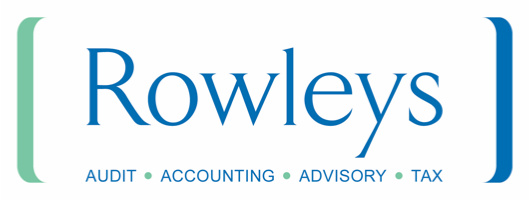News & Events
Financial resilience and outlook for charities
24th November 2025
The charity sector is entering 2026 facing increasing financial pressure, growing demand and heightened scrutiny. The Charity Commission’s inaugural Sector Risk Assessment, together with recent investment and research reports, paints a picture of an environment where resilience is being tested at every level, from national charities with complex investment portfolios to small organisations operating with minimal reserves.
Charity Sector Risk Assessment 2025
The Charity Commission’s inaugural Charity Sector Risk Assessment has highlighted growing concerns around financial resilience and the ability of charities to deliver public benefit. With over 42% of charities reporting expenditure exceeding income, the sector is facing mounting pressure from rising costs (including an increased taxation burden from changes such as the recent increase in the rate of employers’ National Insurance Contributions (NICs)) and increased demand for services. This assessment serves as a call to action for trustees and finance teams to reassess their financial strategies, risk management frameworks and sustainability plans. It also encourages charities to engage more proactively with regulators and funders to ensure long-term viability.
The report also highlights indirect threats to the financial resilience of the sector, such as those stemming from negative public perceptions of the sector arising from fraud cases or other abuses of charitable status. The Charity Commission notes a 23% increase in cases of alleged abuse of charities for private benefit. These instances, whilst representing a minority within an overwhelmingly compliant sector, can have a disproportionate effect on public trust and behaviours such as willingness to donate or otherwise engage with charitable organisations. Use of charities as a money laundering or terror financing vehicle is an ever present concern, as is the potential for override of controls where low numbers of trustees and recruitment issues can lead to a risk of abuse by dominant individuals or those able to exploit a lack of experience and knowledge in areas with complex regulatory frameworks or legislation. Obtaining the right advice is more important than ever, though balancing this with unprecedented cost and demand pressures remains a precarious balancing act.
Investment outlook for charities
Charity investment managers are cautiously optimistic about the future, with dividend growth expected to continue despite market volatility, though the number of respondents to a survey by charity investment managers Newton stating that their investment portfolio was due to provide sufficient income to meet their obligations fell to 61% (a second successive annual reduction) in response to increased demand for services. Political instability and concerns around levels of government debt and tax policy responses were also reflected in caution amongst survey respondents around what they deemed to be a safe portfolio withdrawal rate, with increasing numbers responding with sub 3% estimates or ‘don’t know’ (though the most popular range remains 3 – 3.9%).
Despite the uncertainty, opportunities remain for charities to strengthen their financial base through strategic investment planning. The challenge lies in balancing the needs of current beneficiaries with those of future generations. Trustees are encouraged to review their investment policies, consider ethical and Environmental, Social and Governance (ESG) factors, and ensure alignment with their charitable objectives. The outlook suggests that while risks remain, there is scope for growth and resilience through prudent financial stewardship.
Small charities and financial vulnerability
Small charities play a critical role in supporting financially vulnerable people and communities, yet they face disproportionate financial challenges. Recent reports show that many are operating at a deficit and relying heavily on reserves. This raises concerns about long-term sustainability and service continuity. Research by Lloyds Banking Group, in conjunction with its charitable partners, finds that (unsurprisingly) the vast majority of charities cited additional funding as a key requirement to help them enhance financial wellbeing support services. However, funding was not the only requirement; a majority of charities surveyed also identified training for staff and volunteers, enhanced partnerships with private sector organisations and stronger referral networks with peers as key requirements.
Funders and policymakers are urged to consider targeted support for small charities, including simplified reporting requirements and access to emergency funding. For accountants and auditors, this trend underscores the importance of robust financial oversight and tailored advisory services to help small charities navigate economic uncertainty.
Across the sector, the message is clear: robust financial management, proactive risk mitigation and informed decision-making are essential to long-term sustainability. Whether through revisiting investment strategies, strengthening governance frameworks or securing targeted support for smaller organisations, charities that take action now will be better placed to withstand ongoing pressures and maintain public trust. Despite the challenges ahead, there remains real opportunity for charities to build resilience and with the right advice, partnerships and planning, they can continue delivering meaningful impact for the communities they serve. The Rowleys’ Charities and Not-for-Profit team can provide support and advice for your organisation.
